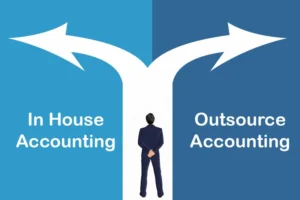Navigating US taxes for you as a Canadian citizen can be daunting and overwhelming, especially if you are not familiar with the intricate and complex tax policies of both countries.
Fortunately, the US and Canada have tax treaties that ease the burden on their citizens. These treaties, such as double taxation treaties, help avoid paying double taxes to both countries. By understanding these tax treaties and policies, you can avoid paying taxes unnecessarily. This guide will help you understand and tackle US taxes as a Canadian citizen working in the US.
Canada vs. US: Where Are You a Tax Resident?
Your tax residency status determines which country has the primary right to tax an individual’s worldwide income. For Canadians like you working in the US, it’s crucial to determine whether you are considered tax residents of Canada, the US, or both countries.
This determination typically involves factors such as the number of days you have spent in each country, your ties to each country (such as family and home ownership), and provisions of the US-Canada tax treaty. Tax residency status can impact your overall tax liability, eligibility for certain tax credits and deductions, and reporting your obligations in both countries. Below is a brief scenario to highlight how it will be enforced on you if you are in a similar situation.
Working in the US as a Canadian? Residency matters! It decides which country taxes your worldwide income.
● Days Spent: Spending 183+ days in the US usually makes you a US resident for tax purposes. The US-Canada treaty can modify this based on your ties.
● Ties to Each Country: Owning a home, family in Canada, and business/social ties strengthen your Canadian residency claim.
Scenario: Michael, a Canadian developer, works remotely for a Canadian company but spends 4 months (120 days) in his Florida vacation home.
Dual Resident? Maybe: Based on days spent in the US, Michael might be a dual resident. However, the treaty can help determine his primary residency, considering his strong ties to Canada.
Key Points:
●Residency = Who taxes your income (Canada or US)?
●Days spent & ties to each country matter.
●The treaty can influence residency.
State-Specific Taxes:
●Consideration: Some US states have additional income or payroll taxes that may apply to you depending on where you work.
●Action: Search for the specific tax implications of working in your State of employment. Below, I have put a table to help you find and estimate the tax you will be liable to pay if you reside in one of these states of America. You can find further information on state government websites or tax professional resources if you want further information on this specific topic. Here are some resources to get you started:
○ National Conference of State Legislatures (https://www.ncsl.org/) provides information on state tax systems.
○ Federation of Tax Administrators: (https://taxadmin.org/) offers resources on various state tax topics. You can also download forms to file your state tax next to your residing State.
| State | Tax rates | Lowest and highest tax bracket (income) |
| Alabama | 2%-5%. | $500-$3,000. |
| Alaska | Does not have state income tax. | |
| Arizona | 2.5%. | Flat rate. |
| Arkansas | 2%-4.4%. | $4,400-$8,800. |
| California | 1%-13.3%. | $10,412-$1,000,000. |
| Colorado | 4.4%. | Flat rate. |
| Connecticut | 2%-6.99%. | $10,000-$500,000. |
| Delaware | 2.2%-6.6%. | $2,000-$60,000. |
| District of Columbia | 4%-10.75%. | $10,000-$1,000,000. |
| Florida | Does not have state income tax. | |
| Georgia | 5.49%. | Flat rate. |
| Hawaii | 1.4%-11%. | $2,400-$200,000. |
| Idaho | 5.8%. | Flat rate. |
| Illinois | 4.95%. | Flat rate. |
| Indiana | 3.05%. | Flat rate. |
| Iowa | 4.4%-5.7%. | $6,210-$31,050. |
| Kansas | 3.1%-5.7%. | $15,000-$30,000. |
| Kentucky | 4%. | Flat rate. |
| Louisiana | 1.85%-4.25%. | $12,500-$50,000. |
| Maine | 5.8%-7.15%. | $26,050-$61,600. |
| Maryland | 2%-5.75%. | $1,000-$250,000. |
| Massachusetts | 5%-9%. | Flat tax of 5%. Income over $1,000,000 is subject to a 9% rate. |
| Michigan | 4.25%. | Flat rate. |
| Minnesota | 5.35%-9.85%. | $31,690-$193,240. |
| Mississippi | 4.7%. | Flat rate. |
| Missouri | 2%-4.8%. | $1,273-$8,911. |
| Montana | 4.7%-5.9%. | Income over $20,500 is subject to a 5.9% rate. |
| Nebraska | 2.46%-5.84%. | $3,700-$35,730. |
| Nevada | Does not have state income tax. | |
| New Hampshire | Does not have state income tax. 3% flat tax on dividends and interest income only. | |
| New Jersey | 1.4%-10.75%. | $20,000-$1,000,000. |
| New Mexico | 1.7%-5.9%. | $5,500-$210,000. |
| New York | 4%-10.9%. | $8,500-$25,000,000. |
| North Carolina | 4.5%. | Flat rate. |
| North Dakota | 1.95%-2.5%. | $44,775-$225,975. |
| Ohio | 2.75%-3.5%. | $26,050-$92,150. |
| Oklahoma | 0.25%-4.75%. | $1,000-$7,200. |
| Oregon | 4.75%-9.9%. | $4,300-$125,000. |
| Pennsylvania | 3.07%. | Flat rate. |
| Rhode Island | 3.75%-5.99%. | $77,450-$176,050. |
| South Carolina | 0%-6.4%. | $3,460-$17,330. |
| South Dakota | Does not have state income tax. | |
| Tennessee | Does not have state income tax. | |
| Texas | Does not have state income tax. | |
| Utah | 4.65%. | Flat rate. |
| Vermont | 3.35%-8.75%. | $45,400-$229,550. |
| Virginia | 2%-5.75%. | $3,000-$17,000. |
| Washington | Does not have state income tax. 7% long-term capital gains tax on profits of $250,000 or more. | |
| West Virginia | 2.36%-5.12%. | $10,000-$60,000. |
| Wisconsin | 3.5%-7.65%. | $14,320-$315,310. |
| Wyoming | Does not have state income tax. | |
| Disclaimer | This data has been obtained from NerdWallet which itself obtained from Tax Foundation | |
US-Canada Tax Treaty: Your Guide to Navigating US Taxes
The US-Canada tax treaty is a lifesaver for those of you who are working in the US! It simplifies how your income is taxed, prevents double taxation, and clarifies residency rules. Knowing the basics can help you navigate US taxes smoothly.
The treaty covers income, capital gains, dividends, and interest. It also prevents disputes between tax authorities. As a bonus, you might be eligible for foreign tax credits on income earned outside Canada and reported on your Canadian tax return.
The Problem: Canadians working in the US can face complex tax situations.
The Solution: The US-Canada tax treaty simplifies things! It prevents double taxation, clarifies residency for tax purposes, and avoids disputes between tax authorities.
How it Works:
● Scenario: Sarah, a Canadian software engineer, takes a 6-month contract in California.
● Tax Implications: Sarah likely remains a Canadian resident but pays US federal income tax on her US earnings. The treaty prevents double taxation – she might claim a foreign tax credit on her Canadian return.
Key Takeaways:
● The treaty simplifies US taxes for Canadians.
● Understand residency rules and potential tax credits.
● Familiarizing yourself with the treaty’s provisions can empower you to make informed decisions about tax filing and potentially maximize your tax savings.
Unsure How US Taxes Affect You? See if any of these examples match your circumstances.
Canadian Citizen Working Temporarily in the US
You have a temporary job assignment in the United States for less than 183 days in a calendar year.
You will remain a tax resident of Canada and are subject to Canadian income tax on worldwide income.
Your income earned in the US is also subject to US federal, State, and possibly local income taxes.
Tax treaties and provisions may apply to determine the primary taxing jurisdiction and avoid double taxation.
You may be eligible for tax credits or deductions in both Canada and the US to offset tax liabilities.
Canadian Citizen Working Permanently in the US
You have relocated to the United States for a permanent job opportunity and established your tax residency in the US.
You will become subject to US federal, State, and local income taxes on your worldwide income.
Tax treaties between Canada and the US may provide guidance on tax residency status and avoid double taxation.
You may still have reporting obligations in Canada, such as reporting foreign income and assets.
Various tax planning strategies, including claiming tax credits and deductions, may optimize tax outcomes.
Canadian Citizen Employed by a Canadian Company with US Operations
You work remotely for a Canadian company that has its operations or clients in the United States.
Your income may be sourced partially from the US, subjecting it to US taxation.
Tax treaties and provisions determine the allocation of taxing rights between Canada and the US.
You may need to navigate complex tax rules regarding cross-border income and tax credits.
Consulting with our tax professionals is advisable to ensure compliance and optimize tax efficiency.
Canadian Citizen Working as an Independent Contractor in the US
You are a services provider or an independent contractor to clients in the United States.
Your income earned from US clients is subject to US taxation, including federal, State, and local income taxes.
Tax treaties may provide guidance on the taxation of self-employment income and potential tax credits.
The individual may need to comply with US tax reporting requirements for self-employed individuals, such as filing Schedule C or Form 1040-ES.
Consideration should be given to deductions, credits, and tax planning strategies to minimize tax liabilities.
Canadian Citizen Employed in the US with Totalization Agreement
You work in the United States and are subject to US federal income tax but qualify for exemption from US Social Security and Medicare taxes under the US-Canada Totalization Agreement.
You will remain subject to Canadian income tax on worldwide income and may need to file tax returns in both countries.
Tax treaties and totalization agreements provide guidance on the allocation of taxing rights and coordination of social security contributions.
The individual may be eligible for tax credits, deductions, or exemptions to mitigate double taxation and optimize tax outcomes.
Income Tax for Canadian Work in US
Income earned by a Canadian working in the US is generally subject to US federal, State, and local taxes. Common types of income include wages/salary, bonuses, dividends, interest, capital gains, and rental income.
US federal income tax rates range from 10% to 37% for individuals in 2024, with different brackets based on filing status and income level.
State income tax rates vary by State, with some states imposing no income tax (e.g., Florida, Texas) and others levying rates ranging from 1% to over 13% (e.g., California, New York).
The Foreign Tax Credit allows taxpayers to offset US tax liability by the amount of foreign taxes paid up to the limit determined by the taxpayer’s US tax liability.
Below is the table for income tax based on your total annual income.
This data is for Single Tax Filers
| Taxable income percentage | Amount |
| Taxable income tax of 10% | $10,275 |
| Taxable income tax of 12% | $10,276 to $41,775 |
| Taxable income tax of 22% | $41,775 to $89,075 |
| Taxable income tax of 24% | $89,076 to $170,050 |
| Taxable income tax of 32% | $170,051 to $215,950 |
| Taxable income tax of 35% | $215,951 to $539,900 |
| Taxable income tax of 37% | $539,900 and above |
This data is for Married Tax Filers
| Taxable income percentage | Amount |
| Taxable income tax of 10% | $20,550 |
| Taxable income tax of 12% | $20,551 to $83,550 |
| Taxable income tax of 22% | $83,551 to $178,150 |
| Taxable income tax of 24% | $178,151 to $340,100 |
| Taxable income tax of 32% | $340,101 to $431,900 |
| Taxable income tax of 35% | $431,901 to $647,850 |
| Taxable income tax of 37% | $647,850 and above |
Lowering Your US Tax Bill: Deductions & Credits for Canadians
While working in the US means paying US taxes, there are ways to potentially lower your tax liability. Let’s explore two key strategies: tax deductions and tax credits.
Tax Deductions:
● Reduced Taxable Income: Deductions lower your taxable income, which is the amount used to calculate your tax owed. Think of it as shrinking the pie before they take a slice!
● Two Main Types: There are two main categories of deductions: above-the-line and itemized.
○ Above-the-Line Deductions: These are subtracted directly from your gross income before calculating your adjusted gross income (AGI). Common examples include contributions to retirement accounts, student loan interest, and self-employment taxes.
○ Itemized Deductions: These are expenses you can potentially deduct from your AGI if they exceed a certain threshold. Examples include mortgage interest, charitable contributions, and certain unreimbursed business expenses. However, the standard deduction offered by the IRS might be more beneficial than itemizing.
Tax Credits:
● Direct Tax Reduction: Tax credits directly reduce the amount of tax you owe, dollar-for-dollar. They’re like cash applied to your tax bill!
● Variety of Options: The US offers various tax credits, including:
○ Foreign Tax Credit: Helps prevent double taxation by offsetting US taxes with taxes paid to a foreign country (like Canada).
○ Child Tax Credit: Provides a direct tax reduction for eligible taxpayers with qualifying children.
○ Education Credits: Help offset higher education expenses.
○ Earned Income Tax Credit: Provides financial assistance to low- to moderate-income individuals and families.
○ Retirement Savings Contribution Credit: Rewards contributions made to retirement savings accounts.
Important Considerations:
● Consult a Tax Professional: Tax laws are complex, and navigating deductions and credits can be challenging. A tax professional can provide personalized advice to maximize your tax benefit while ensuring compliance.
● Double Taxation Treaties: The US-Canada tax treaty can help prevent double taxation on income earned in one country and taxed by the other.
Remember: Canada also allows a foreign tax credit to offset double taxation.
Navigating Tax Reporting: US and Canada
Working in the US as a Canadian introduces a unique tax filing situation. Here’s a breakdown of key requirements for both countries:
Reporting Your Income:
● US: Report all US income (wages, salary, etc.) to the Internal Revenue Service (IRS) using Form 1040 (and possibly additional forms like Schedule B or Form 1116).
● Canada: Report your worldwide income, including income earned in the US, to the Canada Revenue Agency (CRA) using Form T1 General (or another applicable form). You can choose to get the T1 form online or by mail and select your Canadian province, which will prompt you to the download page.
Keeping Records:
● US: Maintain records of US income, such as pay stubs, W-2 forms, or 1099 forms.
● Canada: Keep records of US income alongside any foreign tax documents from US employers.
Tax Forms and Deadlines:
● US: File your US federal income tax return (Form 1040) and any applicable state tax returns by April 15th (with extensions available).
● Canada: File your Canadian tax return (Form T1 General) by April 30th (June 15th for self-employed) with extensions available under certain circumstances.
Tax Optimization and Double Taxation:
● US-Canada Tax Treaty: This treaty helps prevent double taxation and may influence residency status, withholding rates, and available tax credits.
● Tax Credits:
○ US: You might be eligible for the Foreign Tax Credit (FTC) to offset US taxes with Canadian taxes paid.
○ Canada: Claim the Foreign Tax Credit (FTC) on your Canadian return for US taxes paid, reducing the Canadian tax burden on US income.
● Totalization Agreement (if applicable): This agreement may exempt you from US Social Security and Medicare taxes.
Remember: Both the IRS and CRA websites offer detailed filing instructions and deadlines.
Tax Filing Assistance:
● Options:
○ Tax Software: Several tax software programs cater to cross-border situations and can simplify US tax filing for Canadians. Here are a few popular options:
■ UFile (https://www.ufile.ca/)
■ TurboTax (https://turbotax.intuit.com/) (offers an international tax filing version)
■ H&R Block (https://www.hrblock.com/) (offers US tax filing services for Canadians)
○ Tax Professionals: Consulting a tax professional specializing in US-Canada tax issues can ensure you maximize deductions, credits, and treaty benefits. Look for a tax professional who is a Certified Public Accountant (CPA) or a Chartered Professional Accountant (CPA) familiar with both US and Canadian tax laws.
○ Government Resources: Both the IRS (https://www.irs.gov/) and CRA (https://www.canada.ca/en/revenue-agency.html) offer resources and publications relevant to cross-border tax filing.
Social Security and Medicare Taxes for Canadians in the US
Understanding FICA (Social Security & Medicare Taxes):
● These taxes (combined as FICA) fund retirement, disability, and healthcare programs in the US.
● In 2024, the combined rate is 7.65%:
○ Social Security: 6.2% up to a maximum income limit ($147,000 in 2024), with both employee and employer contributing.
○ Medicare: 1.45% with no income limit, with equal contributions from employee and employer.
Who Pays FICA Taxes?
● FICA taxes typically apply to employees considered “resident aliens” for tax purposes.
● Canadians Working in the US: The US-Canada Totalization Agreement may exempt you from FICA taxes.
Resources for Further Information:
● IRS Publication 15 (Circular E, Employer’s Tax Guide): Provides guidance for employers on withholding and reporting taxes, including FICA. (https://www.irs.gov/publications/p15)
● IRS Publication 519 (US Tax Guide for Aliens): Explains tax rules for non-US citizens, including residency, foreign income treatment, and FICA eligibility. (https://www.irs.gov/forms-pubs/about-publication-519)
Not Sure About Your Situation?
This article provides a foundation for Canadians working in the US to understand their income tax obligations. However, US-Canada tax complexities require specialized knowledge.
Consider Consulting a Chartered Accountant (CA) Firm:
● Expert Guidance: CAs specialize in navigating the intricacies of US and Canadian tax laws, including the US-Canada Tax Treaty.
● Maximized Benefits: They can help you optimize your tax situation and claim all applicable deductions and credits.
● Peace of Mind: Their expertise ensures your filings are accurate and compliant, reducing the risk of errors and penalties.
SAL Accounting – Your Trusted Canadian Partner:
SAL Accounting is a Canadian CA firm specializing in US-Canada tax issues. We offer comprehensive services to help you navigate US tax filing and maximize your tax benefits under the treaty. With us by your side, you will have peace of mind, and you won’t have to worry about your tax issues, which we will help you sort out.
Common Mistakes and How to Avoid Them:
● Mistake 1: Missing out on deductions and credits.
● Avoidance: Research deductions and credits available to Canadians filing US tax returns. A tax professional can help identify which ones apply to your situation.
● Mistake 2: Incorrect Forms.
● Avoidance: Ensure you file the correct US tax forms based on your income and filing status. Consult the IRS website (https://www.irs.gov/) or a tax professional for guidance.
● Mistake 3: Missed Deadlines.
● Avoidance: US tax filing deadlines are typically in April. File on time or request an extension to avoid penalties.
● Mistake 4: Unfamiliarity with the US-Canada Tax Treaty.
● Avoidance: Understand the treaty’s provisions on residency, withholding rates, and avoiding double taxation. Consult a tax professional for in-depth advice.
FAQs
Where can I find more information on US tax filing for Canadians?
The IRS website (https://www.irs.gov/) offers a wealth of resources for non-resident aliens filing US tax returns. The CRA website (https://www.canada.ca/en/revenue-agency.html) also provides information for Canadians filing foreign income (including US income).
Do I need to file a tax return in both the US and Canada?
Generally, yes. Canadians remain residents of Canada for tax purposes and must report worldwide income, including US income, on their Canadian tax return. You may be eligible for foreign tax credits to avoid double taxation. US filing requirements depend on your income and filing status. Consult a tax professional for specific guidance.
Can Canadian Citizens Work in the USA?
Yes, they can work in the USA. To properly work int he states you will need to obtain a work visa.
What is the US-Canada Totalization Agreement, and how does it affect me?
This agreement helps prevent duplicate social security contributions. Under certain conditions, it may exempt you from US Social Security and Medicare taxes. Consult a tax professional to determine if you qualify for this exemption.






